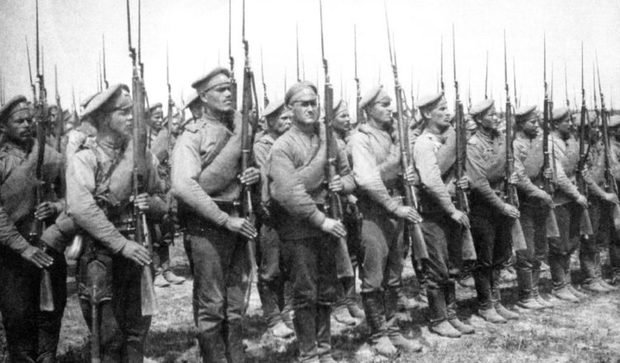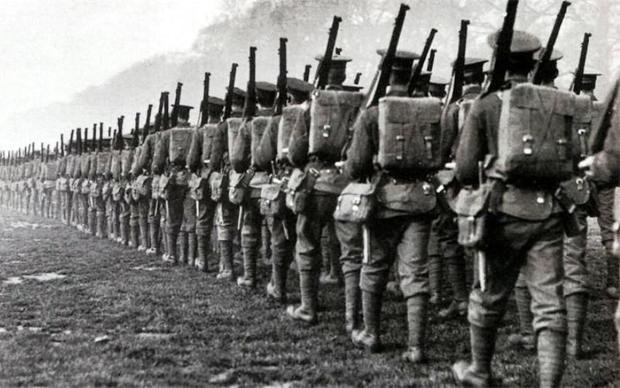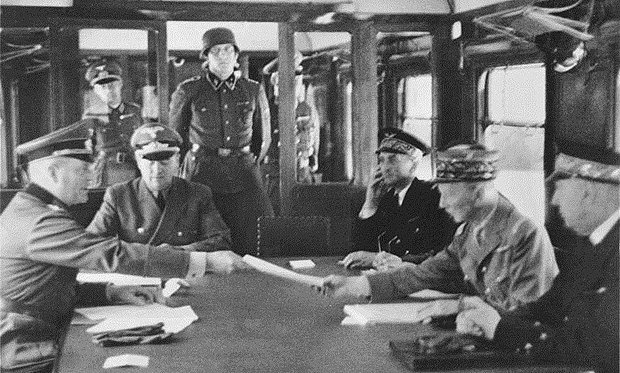''WWI was a terrible war, a war of machines''
Interview with Vladimir Buldakov about WWI. Part 2
The world is celebrating the 100 th anniversary of the end of WWI. Doctor of Historical Sciences, professor, author of The War that Gave Rise to the Revolution Vladimir Buldakov continues sharing his thoughts about this date and tells whether Russia lost this war.
Mr Buldakov, how to correctly treat accusations that Nicholas II embroiled Russia to the war? As I understand, he was the prisoner of the situation – it wouldn't be possible not to help brotherly Serbia. As you said, Germany craved for a war.
Absolutely correct – Russia had nowhere to go. Actually, the war's causes anyway lay much deeper – and it's not just ambitions of Germany. Yes, apart of the Kaiser, no ruler wanted a war. All rulers perfectly knew the world was interrelated, that their economy could suffer from a war, including militaries didn't want it. By the way, it's still unknown whom killed Franz Ferdinand didn't love more – the Slavs or Hungarians. He hated the Hungarians, he hated Masons who seemed to appear everywhere, he could have hated the Slavs too. But at the same time, he was married to the Czech duchess and even wanted to create a three-pronged monarchy, that's to say, to award the Czech Republic the same status that Hungary possessed.
Was he ready to declare war on the Slavs in this case? It's open to doubt. The causes of WWI don't lay in the economy, nor even in politics. Other factors played a role here, which nobody in both Europe and Russia pays attention to. The situation was explosive for another reason: in the late 19 th – early 20th century, Europe had colossal growth in population. Consequently, this population rejuvenated, while the population's rejuvenation leads to the aggression of the social environment. If there is environmental aggression, it means the enthusiasm for a war arises and is important. The European youth just wanted to show off, and many of the youth seriously thought a war would give them this opportunity. Moreover, many people – not only the youth – considered the war would have ended by Christmas, everyone would be back with medals, etc.
In addition, there was another factor. During those years, there was another information revolution apart from the demographic rise: the telegraph, the telephone appeared, not to mention the development of the media and press. This brought to rise in people of free labour, that's to say, the intelligentsia that started to defend its ideas, aspirations and already made some progress. In addition, the Enlightenment was coming to an end, and societies in some European countries already thought there was an obstacle to their development, and if it was eliminated, all would be great. England was an obstacle for Germany, Germany was an obstacle for France, Germany – for England. And Russia anyway wanted to get rid of the German invasion inside the country.

England was an obstacle for Germany, Germany was an obstacle for France, Germany – for England. And Russia anyway wanted to get rid of the German invasion inside the country
In general, the West considered this war as the last war. It was thought it was a solution to all problems – external problems would be solved, as well as, it goes without saying, domestic problems, then there would be eternal peace. In Russia, people don't pay attention to these factors and only speak about contradictions between the empires. Yes, they existed, but sound people understood these contradictions would exist for long. But given the demographic situation, an explosive situation was created, and emotions played a decisive role.
As for Nicholas II, he wasn't an aggressor, he was a peacekeeper. He just had people with geopolitical ambitions around himself.
Were they militaries, diplomats?
There were militaries too, but from a younger generation, not old generals. These people simply craved for showing off. For instance, Vice Admiral Aleksandr Kolchak. He was a typical warrior, without doubt. But not militaries but literary figures, opinion journalists writing about war during that time were the most zealous advocates of the war. They were people sort of modern-day Aleksandr Prokhanov, there was plenty of such rabid figures. However, there has always been plenty of such characters losing the sense of reality. But, of course, Nicholas II, not they, made a decision.
We see accusations of Lenin and Bolsheviks on the other, right-wing patriotic side of history fans, so to speak, who pulled Russia from this war through the too heavy Treaty of Brest-Litovsk. What will you say about it? In fact, it got Ukraine and Belarus again after the terrible Treaty of Brest-Litovsk! Isn't it good?
Of course, someone thinks the Treaty of Brest-Litovsk was a betrayal of national interests. But, in my opinion, Russia didn't have another option in March 1918. But it's known the treaty had a proviso that the results of the Treaty of Brest-Litovsk would be cancelled at the earliest opportunity. And here Lenin was more far-sighted than Left Communists and Left SRs. This is why the Treaty of Brest-Litovsk was profitable for Russia. And the intervention wouldn't play any role for Russia: England and France had their own tasks – both in the north of Russia and Transcaucasia, not anti-Russian.
How much did England and France really appreciate the participation of Russia in the war?
All allies said before the downfall of the autocracy that the army in Russia was in a bad state, it couldn't lead military actions. But Russia couldn't play offence, and the events in July 1917 showed it. The Russian attack exhausted instantaneously, and this had no effect besides the soldiers' disappointment about this war.

The West considered this war as the last war. It was thought it was a solution to all problems – external problems would be solved, as well as, it goes without saying, domestic problems, then there would be eternal peace
What did the allies think after the Bolsheviks came to power?
They hoped Russia would wage the war passively. But it was the moment when the USA joined the war, which was a very important factor for the allies then.
Could you explain why the intervention wasn't anti-Russian and wasn't a goal to destroy Russia like even some of your colleagues suppose?
The Soviet propaganda often said the intervention of 14 states aimed to strangle Soviet Russia in the bud, but the allies had only one thought – how to cope with the Germans and end the war. This is why they used the intervention to somehow destabilise the situation in Russia and to push it to renew military actions against the Germans if possible. Look at the facts, the interventionists weren't active, while in the north of Russia where a lot of armament and uniforms were stored, the allies simply guarded their own warehouses not to let rob them. In general, in 1918, the allies pursued purely defensive goals. And what power Russia had didn't concern them, in general. Of course, some in allied countries thought Bolshevism would spread to Europe. But a victory over the Germans was the main goal.
What about 1919? The war against Germany had ended, while the allies were under Kolchak – enough to remember General Janin and Admiral Knox.
The allies remained under Kolchak mainly to put everything in order – both the Japanese in Vladivostok and the same Czech people because Siberia had both banditry and ataman's rule, while they weren't active. In addition, the movement ''Hands Off Soviet Russia!'' broke out in the West in 1919, and allied army soldiers didn't have a great desire to fight against Russia. For instance, there is a fact that a Canadian corps consisting of 3,000 militaries was in Siberia. And it didn't shot even once at the ''Reds'', and they lived in peace and married to Russian women.
As for the representatives of allied armies Janin and Knox under Kolchak, they should have kept their finger on the pulse before WWI ended, and this is why they couldn't be in Siberia. Kolchak himself received little help from them – they gave little armament, as for uniforms, Kolchak had to take underpants and boats away from the population. Yes, the Czechs had some anti-Bolshevik operations. But in 1919, they mainly guarded railways for their departure.
Terms of the Treaty of Versailles were tough for Germany. The country had to pay reparations and lost territories. Who made up these terms – England and France together or France?
France, of course, it was the main winner! England also gave all it had, it got colonies and restricted submarine warfare. But France got territories having cut a big part of the territory of Germany in its favour. It also included Denmark, Czechoslovakia and Poland, as the population was over five million there. These ideas of France to give its former lands were simply humiliating for Germany. And with this robbery, the Entente powers provoked the appearance of Hitler – there is no way out.
It's considered, in the scientific environment too, that after the win over Hitler, great powers considered their mistakes and understood that humiliating the winners was to create problems for themselves. Do you agree?
After WWII, the Marshall Plan came into force to help Germany's economy. In addition, the situation was already different: during WWII, the winners didn't have imperialistic aspirations, while aspirations existed 100 years before and played their destructive role between wars. Strictly speaking, in 1918, the winners learnt nothing and thought if we were the winners, we could do anything. It was their psychology, I'd say destructive psychology for future events!

In 1918, the winners learnt nothing and thought if we were the winners, we could do anything. It was their psychology, I'd say destructive psychology for future events!
Do you think many good writings in history of WWI have appeared during these years?
There are writings. But both our and western historians haven't so far understood this event completely. Some new points of views, which are quite naïve, appear in English-speaking literature I've met. But historians somehow don't realise why this war happened and its consequences. This happens because the new generation imagines the past in a different way. It takes what it likes in the past except the important factor of naïve approach – it's that we had been living in peace for too long. And one of the causes of WWI, by the way, is that people got used to a peaceful life. Europe didn't have military clashes after the Franco-Prussian War in 1870, and the population started to have a careless attitude to war. And one shouldn't think only rulers are guilty of wars. There are some mass mind aggregated moods that push rulers to some often very-very wrong actions. But historians rarely consider it – every generation of historians wants to have a new history of its own country.
Now it's hard to write about people who became heroes of that war but about whom nothing is known. What should our country do, first of all, to remember those who fought for Russia in 1914-1917? What monuments should we start with?
Any war consists of heroes, and it has much more anti-heroes. People who survived this war deserved to be remembered, of course. WWI was a terrible war, especially for a Russian peasant who faced a war of machines in it. It was a terrible trial for the peasant, and, of course, if he did his duty, he was a hero of this war. This is why he deserves a monument.